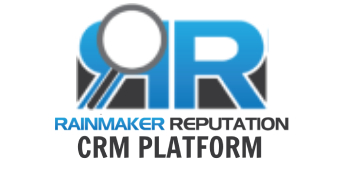Essential Reasons to Prioritize Your Child’s Vision Health for Academic Success
As the new school year draws near, parents are filled with a mix of emotions, including excitement, anxiety, and the hope of seeing their children thrive. Amidst the flurry of new supplies and the anticipation of fresh starts, one critical factor often gets overlooked: vision health. Ensuring your child enjoys optimal vision is not merely a health issue; it serves as a fundamental pillar of their academic readiness and overall learning journey. Routine eye examinations should become a top priority for parents, as they can uncover any hidden issues that might hinder their child’s academic performance. By proactively addressing these challenges, parents can equip their children with the confidence needed to navigate academic hurdles and capitalize on their educational opportunities.

Navigating the Emotional Landscape of Parental Aspirations for Academic Excellence
The journey of every parent through their child’s educational path is deeply influenced by an emotional landscape shaped by personal experiences and future aspirations. Our hopes and dreams for our children are often intertwined with challenges, fears, and desires, creating a complex tapestry of emotions that significantly impacts our approach to their learning. While parents naturally wish to see their children excel academically, these aspirations are frequently mixed with worries about social dynamics and long-term educational outcomes. Balancing these emotions can be daunting, yet it is essential for fostering the best possible support for our children’s growth.
Navigating your child’s educational experiences requires a keen understanding of these emotional aspects. Parents generally seek more than just academic excellence; they aspire for their children to grow into confident, resilient learners who can thrive in diverse environments. We envision a future where they receive personalized and compassionate instruction tailored to their unique needs and strengths. However, these noble aspirations can be clouded by fears of academic struggles, social stigma, and limited educational opportunities that can hinder their development.
As we confront these dreams and anxieties, it’s crucial to recognize how they can affect both our emotional well-being and our children’s learning experiences. Worries about academic performance, social isolation, or feelings of inadequacy can create an undercurrent of anxiety that impacts our interactions and decision-making. Acknowledging these feelings and seeking support can cultivate a healthier environment for our children, enabling them to flourish both academically and emotionally.
The Critical Connection Between Vision and Academic Performance
Many people mistakenly believe that possessing good vision simply equates to having 20/20 eyesight. In truth, visual learning is a multifaceted process that encompasses far more than just clear sight. Effective learning is reliant on a range of visual skills that are paramount for academic achievement, yet these essential abilities frequently go unnoticed during standard eye examinations.
Visual learning encompasses a complex network of skills, including the coordination of eye movements, the ability to track moving objects seamlessly, adjusting focus at various distances, and efficiently processing and retaining visual information. These foundational skills are critical for successful learning, yet they are often overlooked in traditional eye assessments. If these deficiencies are not adequately addressed, they can lead to significant learning challenges. Therefore, parents must prioritize comprehensive vision health evaluations as a crucial step toward unlocking their child’s full academic potential.
Recognizing Learning Challenges Associated with Vision Issues
It is vital for both parents and educators to be proactive in identifying the subtle signs of vision-related learning challenges. Early detection of these indicators can greatly enhance a child’s educational experience, allowing them to achieve their maximum academic potential.
Identifying Signs of Reading Difficulties Linked to Vision Problems
When children struggle to maintain their place while reading, it often signals more than just momentary frustration. If your child consistently loses their spot, skips words, or reads significantly slower than their peers, these symptoms could indicate an underlying vision issue. Such challenges transcend basic reading skills and can profoundly affect (a) comprehension, (b) confidence, and (c) the overall educational experience. Addressing these concerns is essential for fostering a positive and supportive learning environment that allows every child to thrive.

Detecting Physical and Behavioral Indicators of Vision Issues
Parents may be taken aback to learn that vision problems can manifest through various physical and behavioral signs. Being vigilant and observant of these symptoms is crucial for early intervention:
- Frequent eye strain or discomfort
- Reading materials at an uncomfortably close distance
- Consistent eye rubbing
- Headaches after reading or during school activities
- Squinting or tilting their head while reading.
Behavioral Indicators That May Suggest Vision Challenges
Children who are experiencing vision-related difficulties may display specific behavioral traits that can impede their learning.
They might:
- Struggle to recall information from texts they have just read
- Avoid tasks that require detailed close-up work
- Show reluctance towards reading activities
- Have trouble maintaining focus during visually demanding tasks
- Appear easily distracted and disengaged from the learning process.
Understanding the Impact of Vision on Learning and Academic Performance
The repercussions of vision challenges on learning can be profound:
- Difficulty in following instructions accurately
- Frequent misunderstandings leading to mistakes in assignments
- Frustration from underperformance compared to peers
- Poor handwriting that complicates teachers’ evaluations of assignments
- Wider developmental issues that may arise.
Moreover, vision health affects more than just academic performance; it also influences:
- Hand-eye coordination in sports activities
- The ability to track moving objects effectively
- Understanding distances and spatial awareness
- Overall balance, coordination, and proprioception.
Such symptoms can lead to more significant emotional challenges. Children may experience:
- Lower self-esteem
- Frustrations stemming from learning obstacles
- Increased doubts regarding their intelligence compared to peers
- A greater risk of social alienation or disengagement from their educational environment.
If you observe multiple signs from this list, it is essential to take action.
A thorough Behavioral Optometry examination can provide insights that go beyond standard tests, identifying specific challenges that may be obstructing your child’s learning journey.

Enhancing Academic Performance Through Behavioral Optometry
Standard eye exams generally focus on visual acuity, mainly assessing how well an individual can see.
Conversely, Behavioral Optometry adopts a more holistic approach that evaluates the entire visual system and its connection to learning. This comprehensive methodology provides valuable insights that can significantly improve a child’s educational experience.
This advanced approach goes beyond traditional vision testing, necessitating a thorough evaluation by specialists who analyze how visual skills influence a child’s ability to learn, process information, and engage in educational activities.
By identifying potential challenges early on, Behavioral Optometry plays a pivotal role in facilitating a child’s academic journey, proactively addressing issues before they escalate into significant obstacles.
Effective Strategies for Parents to Promote Their Child’s Vision Health
To adequately support your child’s visual health, it is essential to implement a comprehensive approach.
Begin with a thorough Behavioral Optometry assessment that extends beyond conventional vision tests. Selecting specialists with experience in children’s vision care can yield deeper insights into your child’s visual processing capabilities.
Creating an optimal learning environment is equally crucial. This involves not only organizing the physical space but also adapting it to meet your child’s specific visual needs. Consider implementing uniform lighting, ensuring appropriate reading and screen distances, scheduling regular visual breaks, and exploring recommended visual exercises to enhance their overall learning experience.
Open communication is a vital tool in your parenting strategy. Engage in ongoing discussions with educators about your child’s learning challenges, providing detailed information to foster mutual understanding. By collaborating to brainstorm supportive, individualized strategies, you can establish a robust support network for your child, significantly enhancing their chances of success.
Long-Term Vision Care: A Wise Investment in Your Child’s Future
Investing in comprehensive vision care is not just a health imperative; it represents a strategic commitment to your child’s future. Early detection of vision challenges can prevent future learning difficulties, enhance academic and personal confidence, promote emotional well-being, and unlock a world of learning opportunities.
Numerous studies have demonstrated a strong connection between visual health and academic achievement. Undiagnosed vision issues can dramatically impede reading speed, comprehension, information retention, classroom engagement, and overall confidence within school environments. By prioritizing vision health, parents can play a crucial role in their child’s journey toward academic excellence.
A Message of Encouragement for Parents Facing Learning Challenges
To all parents navigating the complexities of educational challenges: your journey is valid, and support is readily available. Assisting a child through academic hurdles requires a personalized approach; however, with the right resources and strategies, remarkable transformations are achievable.
Considering that over 80% of the information children receive from their surroundings is visual, it is critical for them to process their visual experiences effectively to reach their full potential. Delaying attention to vision health may hinder their academic and personal growth.
Schedule a Behavioral Optometry Assessment today to pave the way for your child’s success and fulfillment throughout their educational journey!
Discover Exceptional Vision Care at Eyes by Design in Kincumber
Connect with the knowledgeable and welcoming team at Eyes by Design.
As an independent, family-owned optometry practice based in Kincumber for two decades, we are dedicated to providing exceptional care for your child’s vision needs. Dr. Nick has successfully assisted two generations of children in improving their reading and comprehension skills, both in the classroom and at home.
Disclaimer: This guide is intended for informational purposes only and does not replace professional medical advice, diagnosis, or treatment. Always consult a qualified Behavioral Optometrist, General Practitioner, or similar healthcare provider for personalized guidance.
The Article: Routine Eye Exams: Enhance Your Child’s Academic Success first appeared on https://writebuff.com
The Article Eye Exams: Boosting Your Child’s Academic Performance Was Found On https://limitsofstrategy.com


One response
The emphasis on vision health as a cornerstone of academic success resonates deeply with me, especially as we approach another school year filled with new beginnings and fresh possibilities. As a parent, I find it fascinating how often we focus on the tangible aspects of education—like school supplies and schedules—while neglecting the equally crucial underlying factors, such as our children’s health. In my experience, vision issues can be easily overlooked, as they often manifest gradually, leading us to believe that our kids are adapting just fine when, in reality, they might be struggling silently.